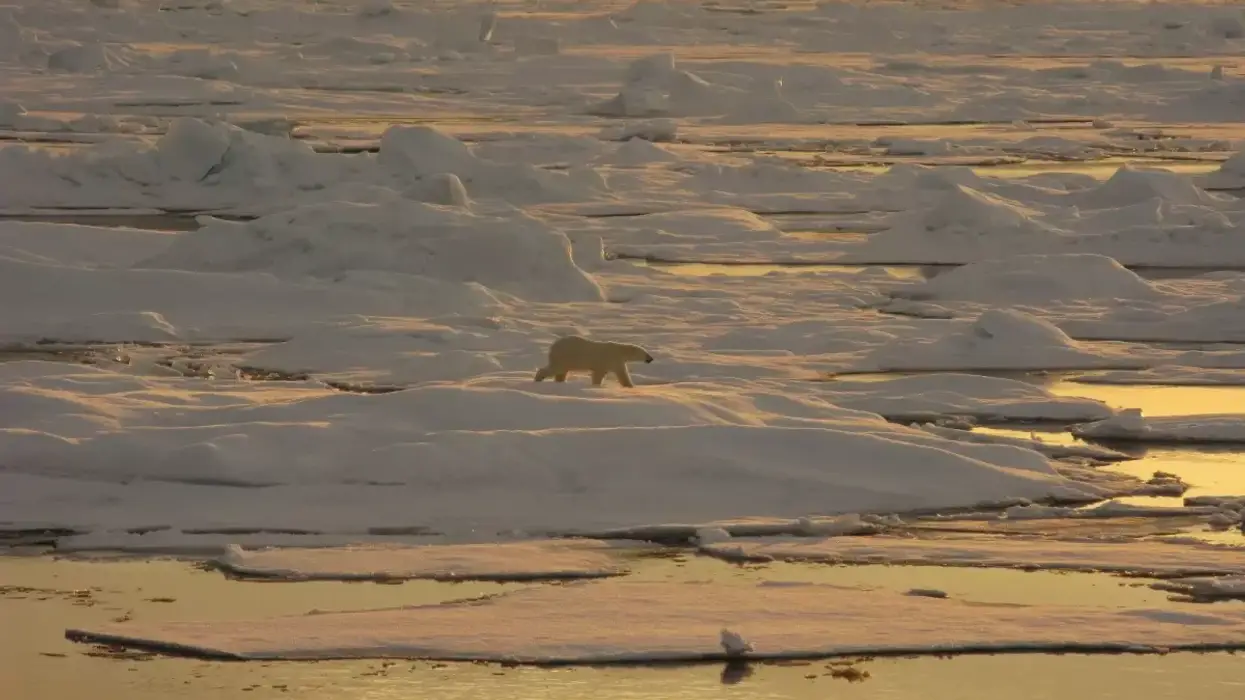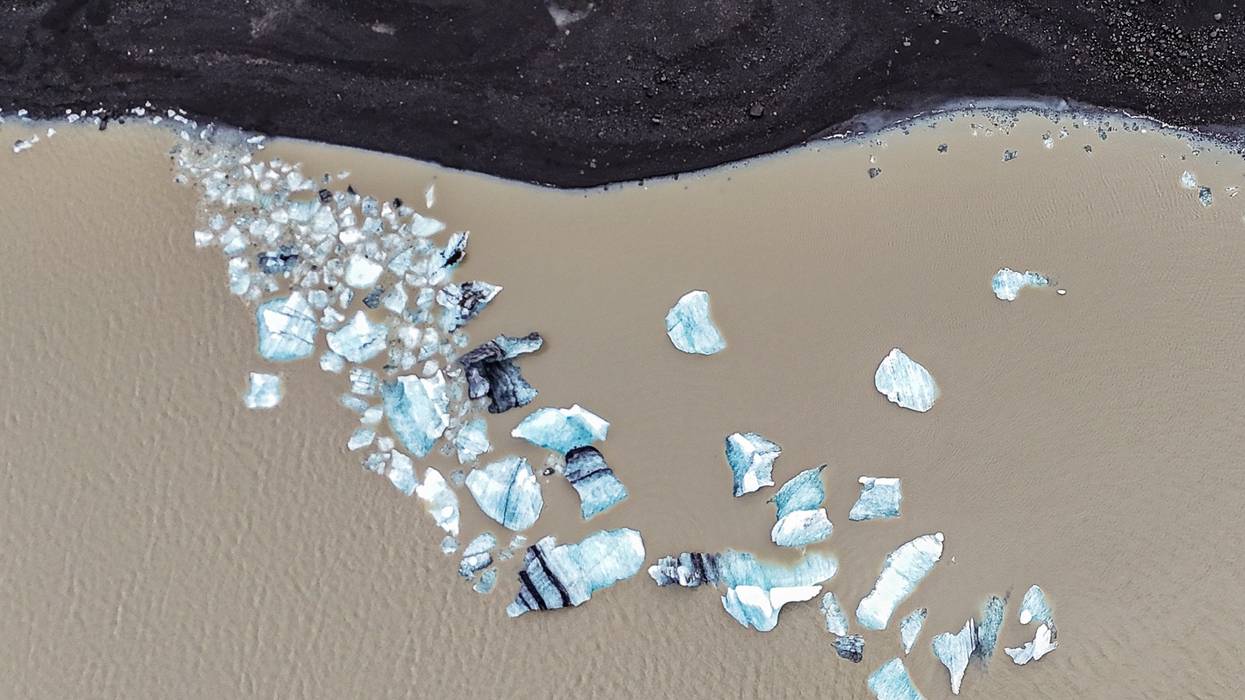The Time Has Come to Establish the International Arctic Ocean Sanctuary
In addition to accelerating efforts to reduce global carbon emissions to reverse global warming, governments must urgently adopt strong, permanent protections for the entire Arctic Ocean.
On World Ocean Day, and the eve of the United Nations Ocean Conference in Nice, France opening Monday, the Arctic Ocean ecological crisis needs to be top of the list for attention by governments.
Given the well-documented, catastrophic decline of the Arctic Ocean sea ice ecosystem in recent decades due to climate change, coupled with the increasing threats and impacts from industry and military activity in the region, it is imperative that governments establish an International Arctic Ocean Sanctuary to preserve this extraordinary ecoregion as a global commons for peaceful, non-commercial, scientific purposes.
Covering approximately 5.4 million square miles, the Arctic Ocean is one of the most extraordinary and vibrant regions of the global ocean, and plays an important role regulating Earth’s climate.
Combined with the effects of climate change, industrialization and militarization would further accelerate the ecological and social collapse of the struggling Arctic Ocean region.
The Arctic marine ecosystem is globally unique, productive, and remains relatively unexplored. The ocean biome supports more than 7,000 identified species, many of which are found nowhere else on Earth—polar bears, walrus, several kinds of ice seals, narwhals, beluga whales, bowhead whales, some of the largest populations of seabirds in the world, and many unique fish and invertebrate populations. It hosts cold seeps, hydrothermal vents, stunning benthic habitats, a rich pelagic ecosystem that remains surprisingly active during winter darkness, and supports the subsistence cultures of coastal Indigenous Peoples.
However, this unique polar marine ecosystem is now one of the most endangered regions of Earth’s biosphere, suffering effects of climate change more severely than anywhere else. Arctic sea ice has declined by more than half in the last 50 years, losing about 1 million square miles in both summer and winter, has thinned from an average of four meters to about one meter, and could disappear entirely in summer by 2035. Multiyear sea ice has all but vanished. This remarkable decline has been caused by global carbon emissions from human activity, mainly fossil fuel use.
The loss of Arctic sea ice over the last half-century constitutes one of the largest declines in ecological habitat on Earth, rivaling the loss of tropical rainforests. The resultant Arctic Ocean ecological crisis is now severe, and predicted to get much worse in coming decades.
In addition to devastating impacts of climate change in the Arctic Ocean, commercial interests are clamoring to exploit ice-free offshore areas for oil and gas, methane hydrates, minerals, commercial fishing, shipping, and tourism. And Arctic coastal nations have made Extended Continental Shelf (ECS) seabed claims (pursuant to U.N. Law of the Sea, Article 76) beyond their 200-mile Exclusive Economic Zones (EEZs), a dangerous territorial expansion into international waters with an eye toward resource extraction.
As Arctic nations and others (China, India, etc.) advance their own parochial interests across the region, there is a growing competitive race to exploit Arctic offshore resources and to project military power across the region to secure these competing national interests. As such, the risk of military confrontation across the Arctic Ocean is escalating. Combined with the effects of climate change, industrialization and militarization would further accelerate the ecological and social collapse of the struggling Arctic Ocean region, and would clearly compromise the ability of the bioregion and its people to survive the 21st-century climate crisis.
In fact, the resource and political tensions in the Arctic Ocean today are remarkably similar to the Antarctic after World War II, that were resolved then by the leadership of U.S. (Republican) President Dwight D. Eisenhower proposing and negotiating the historic 1959 Antarctic Treaty. The international Treaty, now with 58 nation-state members, permanently protects the extraordinary 5.5 million square-mile Antarctic continent as a global commons for peaceful, scientific purposes, free from nuclear testing, military operations, economic exploitation, and territorial claims. The Antarctic Treaty remains the single greatest conservation achievement in history.
The same opportunity now presents itself with the Arctic Ocean. In addition to accelerating efforts to reduce global carbon emissions to reverse global warming, governments must urgently adopt strong, permanent protections for the entire Arctic Ocean to give this region and its people the best chance possible to survive the 21st-century climate crisis. Given the pace of decline, this may be our last best chance to do so.
While Arctic nations have begun protecting some areas off their coasts, still less than 5% of Arctic Ocean waters are in permanently protected status. This is clearly insufficient.
The proposed circumpolar Arctic Ocean Sanctuary must fully protect not only international waters beyond coastal state 200-mile EEZs across the 1.1 million square mile Central Arctic Ocean (as is currently proposed), but also the highly productive waters within the EEZs of Arctic coastal nations—Canada, Norway, Denmark and Greenland, Russia, and the U.S., where most ecological activity, human impact, and threat occurs. The sanctuary should permanently prohibit oil and gas leasing, mineral leasing, commercial fishing, military activities, improve shipping safety, reduce pollutants, and enhance scientific research.
To be sure, it is a big ask of the five Arctic coastal nations to contribute some of their claimed territory into a globally protected area, but this was the right thing to do in 1959 in the Antarctic, and it is the right thing to do now for the Arctic.
While the current federal administrations in the Russia and U.S. habitually oppose any and all environmental conservation proposals, perhaps presidents Vladimir Putin and Donald Trump might see this as a historic legacy in the midst of the environmental havoc they have caused, a chance to be remembered as Eisenhower is today for his leadership in negotiating the Antarctic Treaty. And just to note, former President Joe Biden ignored this request entirely, enacted no comprehensive permanent protections in the U.S. Arctic Ocean off Alaska, and made no effort to begin discussions on the International Arctic Ocean Sanctuary.
Global society has a historic choice to make with the imperiled Arctic Ocean. Should we continue our competitive industrial and military expansion into one of the last wild areas of the world, further degrading a region already unraveling due to human-caused climate change? Or should we protect and sustain this magnificent place for all time, giving it and its inhabitants, human and non-human, the best chance possible to recover from climate change this century?
How we answer this question will tell us a lot about ourselves and our future.


